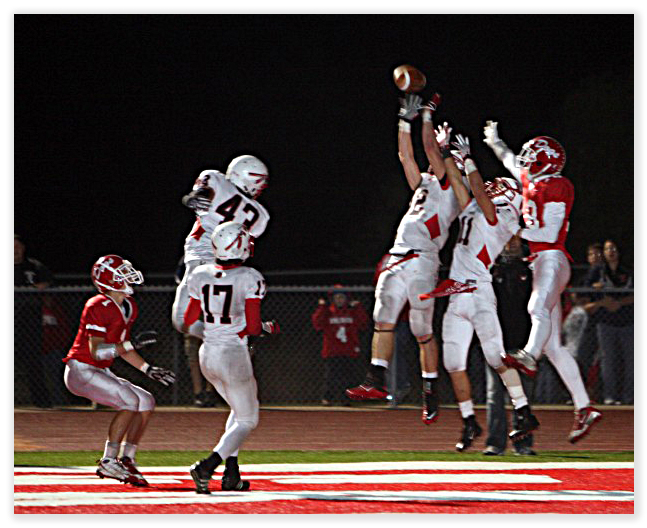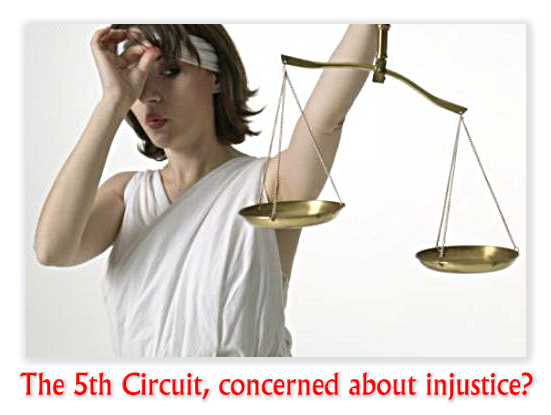We post news and comment on federal criminal justice issues, focused primarily on trial and post-conviction matters, legislative initiatives, and sentencing issues.
KNOCK ME OVER WITH A FEATHER
After a federal court of appeals decides a case, it issues a mandate, which is the appellate court’s transmittal of its order to the lower court for that court to carry out what the appeals court has ordered be done.
 There is a procedure – a Hail Mary if ever there was one – known as recall of the mandate, in which the unsuccessful litigant asks the appellate court to recall its mandate to take another look at the decision. The standard for getting a mandate recalled varies by court, but the 5th Circuit’s Local Rule 41.2 is not atypical: “Once issued a mandate will not be recalled except to prevent injustice.”
There is a procedure – a Hail Mary if ever there was one – known as recall of the mandate, in which the unsuccessful litigant asks the appellate court to recall its mandate to take another look at the decision. The standard for getting a mandate recalled varies by court, but the 5th Circuit’s Local Rule 41.2 is not atypical: “Once issued a mandate will not be recalled except to prevent injustice.”
Regardless of the announced standard, appellate advocates know that getting a court to actually recall its mandate is well-nigh impossible.
At least that was the case until last week brought a remarkable 5th Circuit decision. In 2015, Jesus Montalvo pleaded guilty to reentering the United States. The presentence report recommended applying a 16-level “crime of violence” enhancement pursuant to 2L1.2(b)(1)(A)(ii) of the Guidelines based on Jesus’s prior conviction for burglary under Texas Penal Code 30.02(a).
 At the time, Jesus argued his prior conviction did not qualify for the enhancement because Texas Penal Code 30.02(a) is an “indivisible” statute and is categorically broader than generic “burglary of a dwelling. But at time, 5th Circuit precedent in United States v. Uribe held otherwise, so Jesus’ sentence was upheld in May 2017.
At the time, Jesus argued his prior conviction did not qualify for the enhancement because Texas Penal Code 30.02(a) is an “indivisible” statute and is categorically broader than generic “burglary of a dwelling. But at time, 5th Circuit precedent in United States v. Uribe held otherwise, so Jesus’ sentence was upheld in May 2017.
But 10 months later, the en banc 5th Circuit issued United States v. Herrold, holding that the Texas burglary statute was indivisible and overruling Uribe. Jesus promptly filed a motion to recall the mandate and for leave to file an out-of-time petition for panel rehearing.
Last week, the 5th Circuit granted the motion. The Court agreed that Jesus was entitled to recall because Herrold had rendered the Court’s decision in his case was “demonstrably wrong,” and that failure to recall the mandate “would produce an unwarranted disparity between him and similarly situated defendants in other cases.” The Court said that “both of these factors favor recall and find that a third consideration — Montalvo’s demonstrated diligence in asserting his claim — does as well.” The Court said that “the interest in correcting our decision, now that Herrold has rendered it ‘demonstrably wrong’ weighs heavily in favor of recalling the mandate in this case.”
The government faulted Jesus for not filing a petition for rehearing en banc or a petition for a writ of certiorari. But the Court said Jesus had “objected to his sentence enhancement in the district court, not just on appeal. That shows sufficient diligence on his part.”
 The notable aspect of the case is that Jesus, who undoubtedly was entitled to recall, is really in no different position that many other petitioners. The Court said “here, recalling the mandate is necessary ‘to prevent injustice’” (a rarely-used expression in a 5th Circuit that gave us prizes like Buck v. Davis, overturned by the Supreme Court last year). The 5th Circuit, carrying on about “unwarranted disparities” and justice for criminal defendants: You could have knocked me over with a feather.
The notable aspect of the case is that Jesus, who undoubtedly was entitled to recall, is really in no different position that many other petitioners. The Court said “here, recalling the mandate is necessary ‘to prevent injustice’” (a rarely-used expression in a 5th Circuit that gave us prizes like Buck v. Davis, overturned by the Supreme Court last year). The 5th Circuit, carrying on about “unwarranted disparities” and justice for criminal defendants: You could have knocked me over with a feather.
There are plenty of people in the same boat as is Jesus Montalvo. If this holding is faithfully applied, those folks may be entitled to similar relief.
United States v. Montalvo-Davila, Case No. 16-20081 (5th Cir., May 16, 2018).
– Thomas L. Root

